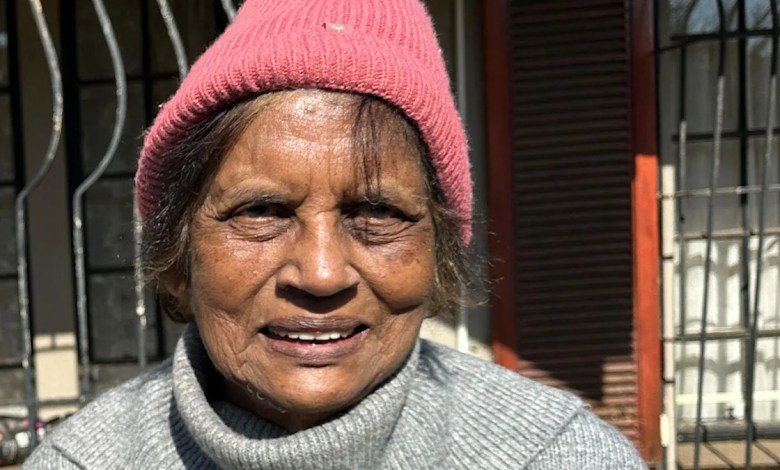To make the Soler’s Solo Isshe in South Africa

Mark South African Mark Moodley believes that installing a local solar system helps to keep his 81-year-old mother alive.
He spent three weeks in a great care last year, and now back home in Benoni, east of Johannesburg, he needs oxygen to help her breathe.
But the provision of electricity in the country did not depend on them.
“There are days we can without strength for six hours.
“Sometimes we had to rush her to the hospital where that didn’t work. It was terrible.”
At that time, doctors told the family how much he might have. But the strong power offer has given them more time together.
“It’s been life. I don’t have to look for the night. I know her oxygen tank is powerful,” she said.
Despite the latest development of the Grid power in South Africa, there is still exit.
Further power supply has been the right of the country, which has endured for almost 15 years ‘waste of leprosy’ – Blactuals are organized across the world’s fragile infrastructure.
As well as risking to a certain health, the problem hurt economic growth and contributes to the loss of jobs.
South Africa relies heavily on the pollution of coal strength – IT an account about 80% of all electricity made. But recent years, they are released from the combat of small sun rate and the created tax rates.
The country also looks at additional investment in renewable power to help the changing of coal.
At home, those with financial acts have gradually passed their homes and businesses that do not engage in the Grid, investing in solar energy programs that require the first $ 14,000- $ 10,400- £ 16,500).
Mr Moodley hopes to go completely grid [Pumza Fihlani / BBC]
That price tag means that this option is far from many South Africans. Those who are slow able to take advantage of the sunlight and planting clean, trustworthy power.
But Mr Moodley could turn to the Pay-As-You-Go Program that has stored lights and medical equipment.
His electric report dropped for $ 80 per week – the saving of the prospect of expanding what he has and eventually walk completely from the Grid.
The program that he uses appears in extinction, the start of the area was established in 2019
For domestic users, a fundamental $ 60 percent month – and by reference to the highest payment – making the solar energy available for granted.
The company claims to identify the gap of the market – inexpensive Solar solutions that are associated with small businesses and low-income families.
“South Africa traditionally has a higher electricity access – but access does not matter if it is honest or costly,” Vincent Maposa, the Founder of the company and the frontal commentator.
“We had to cultivate products that were ready for access and financially accessing.”
While the solar energy is a new in South Africa, the Wetetillily business model includes a simple cellular payment system, allowing customers to spread the cost.

The boxes containing inVERTER and a domestic installed and business compiled in factory in Johannesburg [Pumza Fihlani / BBC]
Age, spending the burden used as the last last attempt to keep the national grid from complete fall, following decades management in state Utility.
While blackouts reduce other urban centers, poor communities and business people continue to be obliged as the wars of aging infrastructure.
For some of the workers worrying about theft and uses it has reduced people to the sale of the Sun’s equipment, but it is a cold, changing panels can be installed on the normal roof of these areas.
“We have come with a panter attached to the roof.
“Regarding effective work, they do almost even with the traditional Panels.”
The power unit, including the Inverter, which changes the power generated by electricity, and the battery applicable when the sun does not shine, blocked in the largest 300kg box in the wall.
This team said this reduces the risk of stealing and avoiding drawing attention to severe criminals.

Julius Koobuteng’s business was threatened due to a decrease in power [Pumza Fihlani / BBC]
The ShookeEper Lideer Julius Koobatek has recently made the day change to save his small meal shop.
In the bag of a blue banie and a blue jacket to avoid the cold in Southern Hemisphere in winter, he puts on the frightening freezer that creates the common power cutter almost harming its way of life.
“The meat will come out, milk will rob them. Sometimes we were unpleasant without power,” says 43.
But from March, his shop in Krugersdorp, west of Johannesburg, have been using Pay-As-Good Solar Manking program to store lights and Frads.
Some small business owners have turned to a Back-Up Diesel Generator but Mr KoobeThe, who has a shop 13 years ago, was deducted from a friendly friend option.
“Reductions of energy has affected small businesses. I know many in the area that they needed to close because they could not be accompanied by uncertainty,” he said.
“We live in a month, depending on how the business contains. If you can’t verify power, how do you plan and even future?”
Now he doesn’t worry when the power comes out that is “great relief”.
It costs his business $ 250 a month but Mr. Koobaneeng’s business has taken due to honest power.
“People know that my shop is always open even if the energy comes out.
To her, the advantage does not mean by reducing his electrical debt. It is a harmony.
“Solar returned me. I can plan my day knowing I will be strong.”
You might be interested in:

Go to Bbrcafra.com For many matters from the African continent.
We followed on Twitter @Bbcafricicaon facebook at BBC in Africa or in Instagram at Bbchafra
BBC Africa Podcasts



